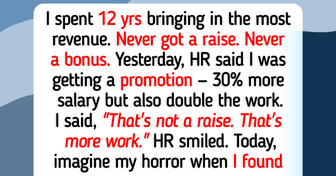I Refuse to Give Up My Inheritance Just Because I’m Childfree

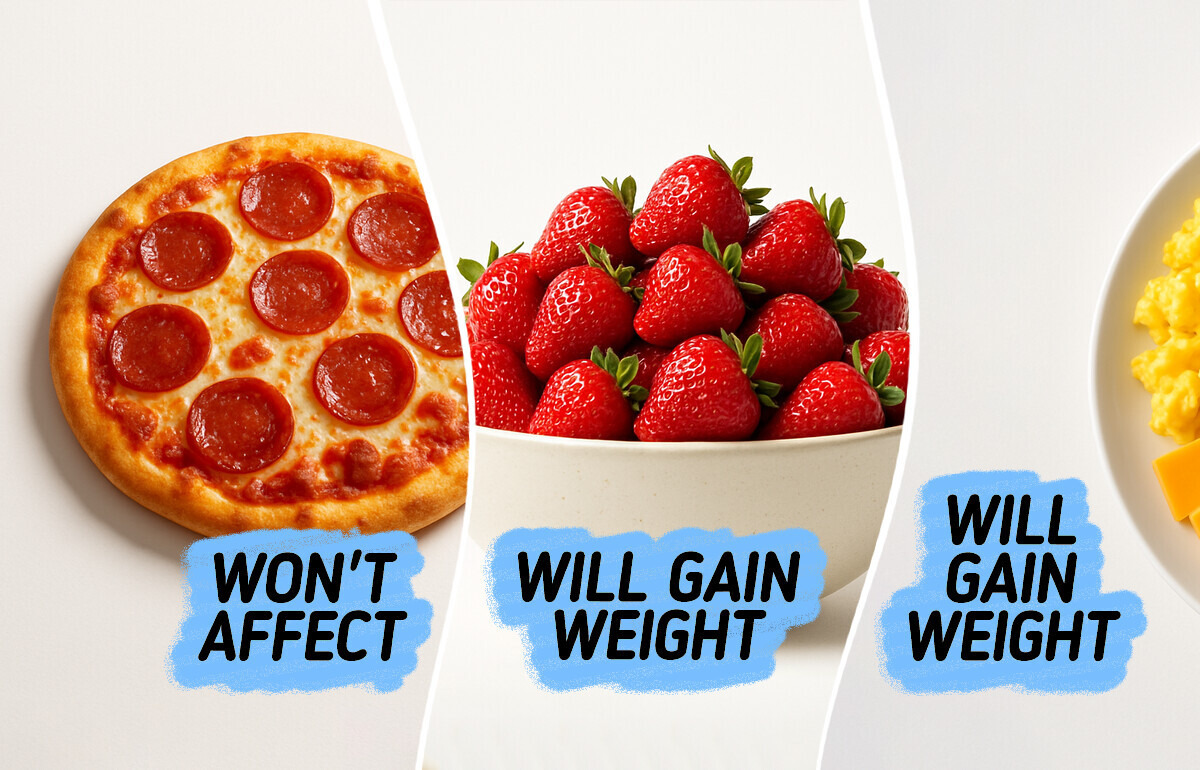
In the world of fitness and dieting, there’s no shortage of advice. However, some widely accepted “facts” about calories might actually be setting you back on your weight loss journey. Many of these myths have been passed down without question, but science is starting to set the record straight. Let’s debunk some common calorie myths and explore how they impact your goals.
CONTENT IS PROVIDED FOR INFORMATIONAL PURPOSES ONLY AND IS NOT INTENDED AS A SUBSTITUTE OF MEDICAL ADVICE.
SEEK GUIDANCE OF YOUR DOCTOR REGARDING YOUR HEALTH AND MEDICAL CONDITIONS.

While calorie tracking can be useful, it’s not the only method to lose weight. Listening to your body and eating mindfully—paying attention to hunger and fullness cues—can lead to healthier, more sustainable habits. It’s about building a healthy relationship with food rather than obsessing over every number.
Also, obsessive calorie counting can lead to an unhealthy relationship with food. It may increase stress and anxiety around eating, possibly triggering disordered eating behaviors like binge-eating. Developing a mindful approach to eating is often more beneficial for long-term health.
There’s no scientific evidence supporting the idea of negative-calorie foods. While foods like celery are low in calories and high in water content, they don’t burn more calories than they contain. These foods are great for filling up on low-calorie options, but they won’t magically melt away fat.
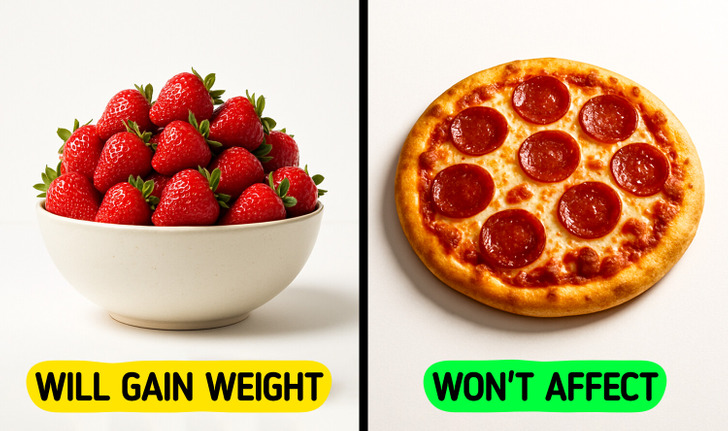
While whole foods like fruits, nuts, and vegetables are nutrient-dense and good for your health, they still contain calories. Consuming large portions—even of low-calorie foods like strawberries—can lead to weight gain if it consistently exceeds your energy needs. Conversely, enjoying a slice of pizza now and then won’t automatically derail your goals if it fits within a balanced diet. It’s all about context, portion control, and overall patterns, not food labels alone.
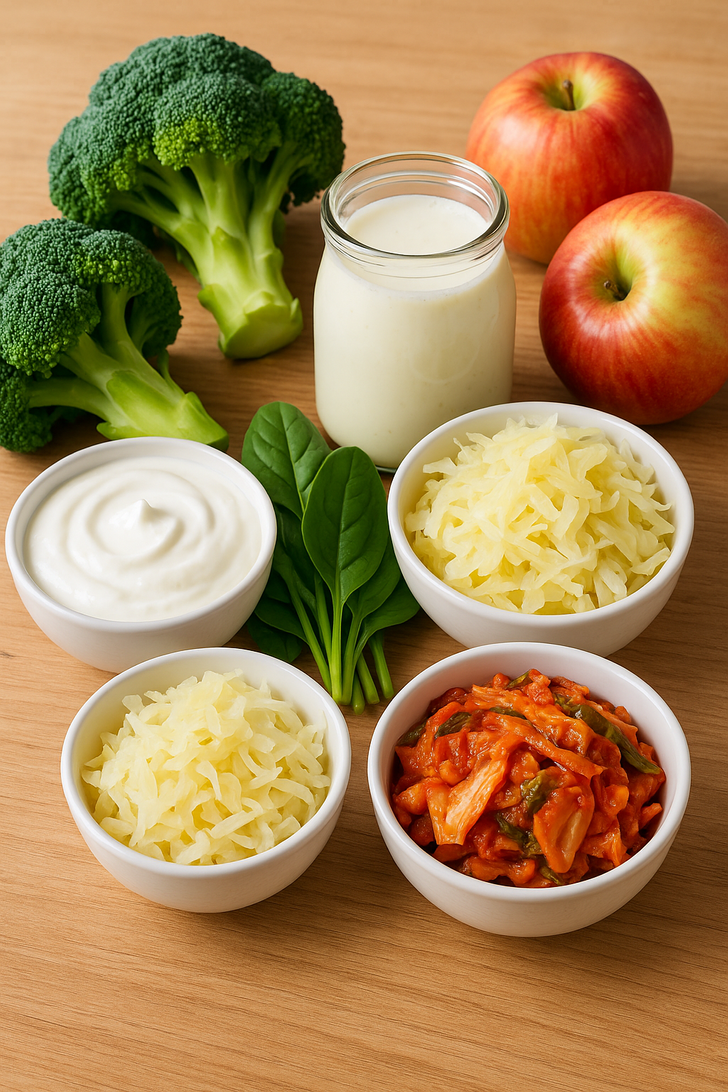
The composition of your gut microbiota—bacteria in your gut—can influence how calories are absorbed and utilized. Studies show that a healthy gut microbiome can improve calorie absorption and help maintain a healthy weight, while an imbalanced gut microbiome may promote fat storage.
For example, foods like yogurt, kefir, sauerkraut, and kimchi—which are rich in probiotics—can enhance digestion and nutrient absorption by supporting the growth of beneficial gut bacteria. Additionally, fiber-rich vegetables like broccoli, spinach, and fruits such as apples and bananas feed the beneficial bacteria in your gut, further supporting a healthy microbiome.
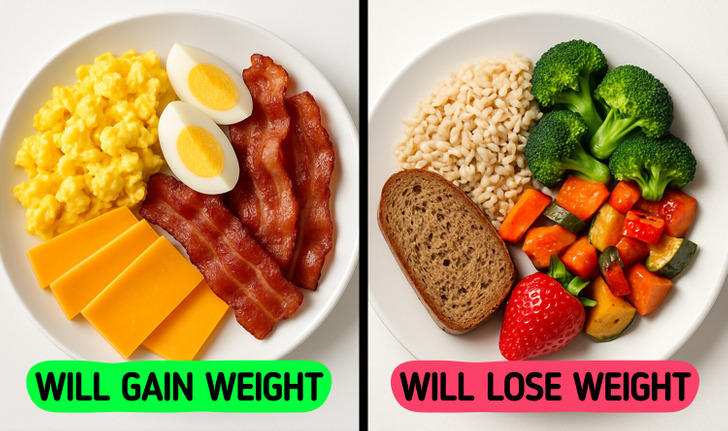
Healthy carbohydrates, such as whole grains, fruits, and vegetables, are essential for energy and overall health. While cutting carbs might seem like a quick way to lose weight, it’s not sustainable long-term. Diets rich in healthy carbs help with weight management and even improve satiety.
For instance, whole grains like quinoa and brown rice, along with fruits such as apples and berries, provide fiber that aids digestion and keeps you feeling full longer. Conversely, cutting out all carbs deprives you of valuable nutrients, and low-carb diets are often associated with the intake of unhealthy fats. It’s important to focus on the quality of carbohydrates consumed rather than eliminating them entirely.
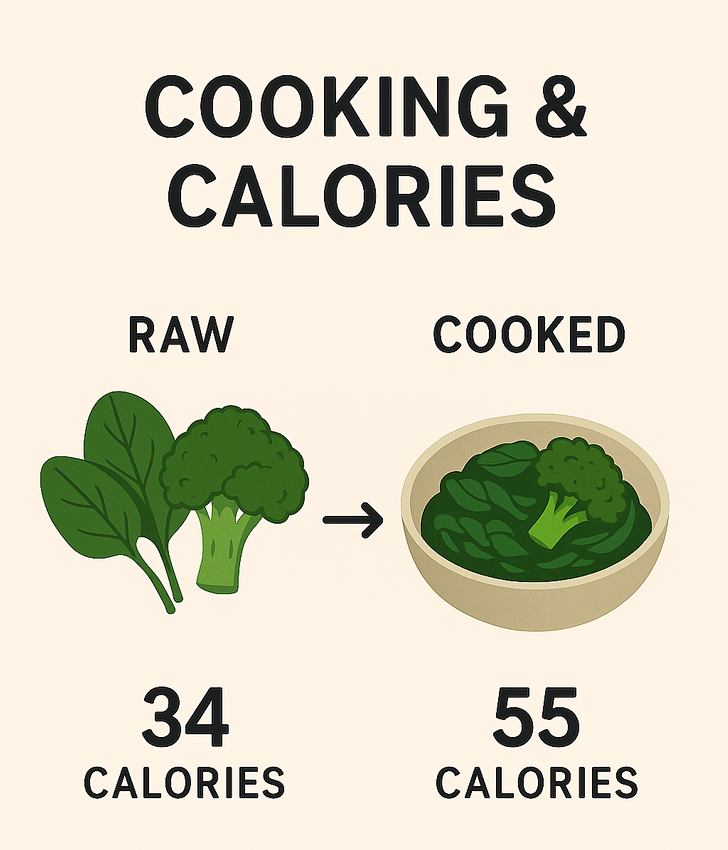
One common myth is that cooking vegetables significantly reduces their calorie content. In reality, cooking vegetables like spinach and broccoli actually concentrates their calories, as the loss of water during the cooking process makes them denser. While cooking can boost the bioavailability of certain nutrients, such as carotenoids in carrots and spinach, it doesn’t lower the overall calorie content—just changes the way those calories are absorbed.
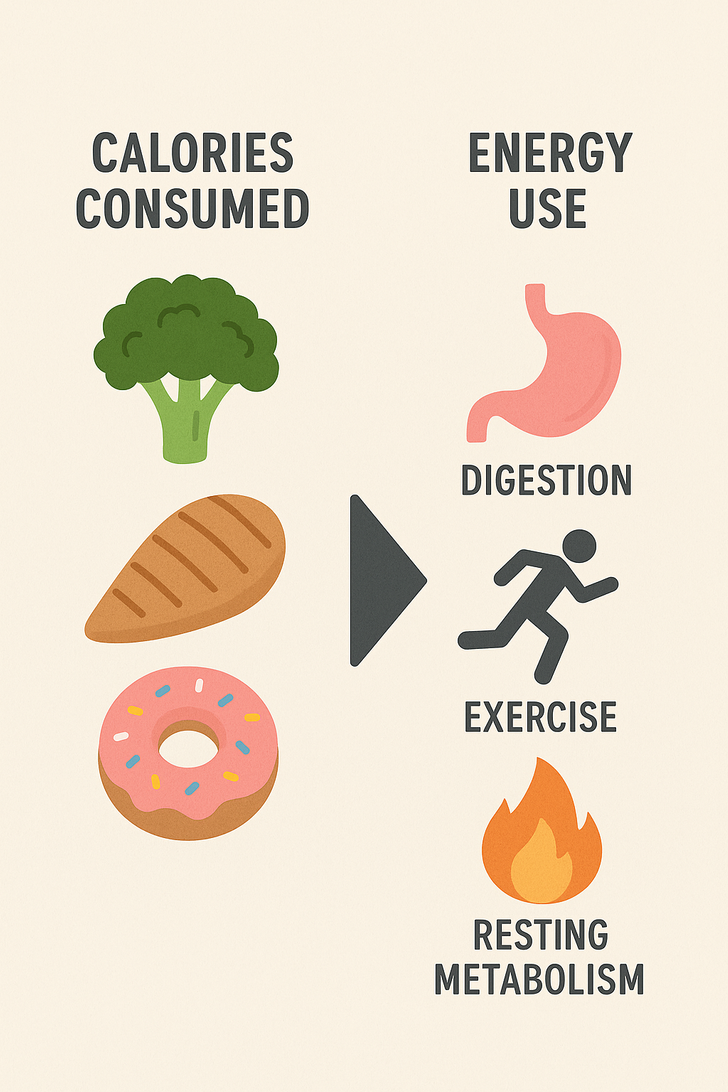
While calorie balance plays a role, the ’calories in, calories out’ model doesn’t tell the whole story. Factors like your metabolism, hormone levels, and the thermic effect of food (how much energy your body uses to digest food) all influence how calories are processed and utilized.
Calorie myths can lead to frustration and confusion, especially when trying to navigate weight loss. By focusing on food quality, listening to your body, and understanding how your metabolism works, you can make more informed decisions that support long-term health. The goal is to find a balanced approach to nutrition that works for you, without falling victim to common misconceptions!
Check out this article to discover 7 effective ways your trash can actually help you achieve glowing skin, from kitchen scraps to everyday waste!






